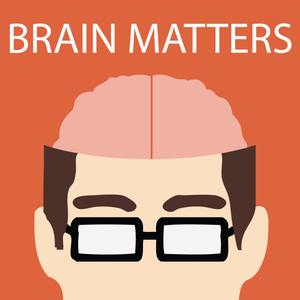
Brain Matters
Brain Matters Neuroscience
- 41 minutes 42 secondsBut Always See First with Dr. Roderick MacKinnon
On this episode, Anthony spoke to Dr. Roderick MacKinnon (Professor, Rockefeller University, HHMI) about ion channels, studying what fascinates you, and the importance of thinking childishly.
The music on today's episode was by The Caretaker: thecaretaker.bandcamp.com
9 January 2019, 2:29 am - 46 minutes 12 secondsBeing Romantic and Practical with Dr. Richard Tsien
On this episode, Matt spoke to Dr. Richard Tsien (Professor & Chair, New York University). Dr. Tsien has a diverse career, contributing many important findings to the field of cellular and molecular neuroscience, with a primary focus on understanding how the brain meets the demands to process information. Matt delved primarily into Dr. Tsien's path to becoming a scientist, and his advice for anyone interested in becoming a neuroscientist.
The music on today's episode was by Robby. Check out their music at listentorobby.bandcamp.com
22 May 2018, 11:00 am - 52 minutes 10 secondsBarflies: Alcohol and Fly Genetics with Dr. Fred Wolf
On this (50th!) episode of Brain Matters, Anthony talks to Dr. Fred Wolf (Assistant Professor, UC Merced). Dr. Wolf is interested in how alcohol and other drugs of abuse change our genes when we take them. Using the fruit fly as a model organism, he is able to use powerful techniques to delve into the complex relationship between drugs, genes, and behavior.
Dr. Wolf helps run his own biology podcast, RadioBio, with graduate students at UC Merced. Check it out at radiobio.net
The music on today's podcast was by koleżanka. Go check out and buy their music at kolezanka.bandcamp.com
26 December 2017, 10:19 pm - 52 minutes 14 secondsAlzheimer's and C. elegans with Dr. Jon Pierce
On this episode of Brain Matters, we talked with Dr. Jon Pierce (University of Texas at Austin). Jon uses to C. elegans to study Alzheimer's, Down Syndrome, alcoholism, and more.
Jon is currently raising money to fund undergraduate research and engagement in his lab. You can find more information at: https://hornraiser.utexas.edu/project/5559
This episode was brought to you by Maze Engineers. To get 10% off your quote visit: https://hornraiser.utexas.edu/project/5559. Thanks to Bridget and Brian for their awesome maze ideas!
19 April 2017, 9:25 pm - 48 minutes 32 secondsSpace and Time with Dr. Mayank Mehta
On this episode of Brain Matters, Matt and Mayank Mehta (Professor, UCLA) talk about how rodents and human perceive space and time. Mayank has always been obsessed with time and merges physics and neuroscience to understand how the brain deals with these abstract concepts.
This episode was brought to you by Maze Engineers. Get 10% off your quote by visiting mazeengineers.com/brainmatters and enter the offer code: brain. They have some incredible mazes and other neuroscience goodies so check them out.
7 March 2017, 2:50 am - 48 minutes 29 secondsBecoming a Curious Scientist with Dr. André Fenton
What's the most important thing about being a scientist? According to Dr. André Fenton: Curiosity. Anthony and André talked about how André tinkered his way to researching learning and memory at NYU.
13 February 2017, 2:56 pm - 57 minutes 39 secondsThe Nature of Nature (and the brain too) with Dr. David McCormick
This week on Brain Matters, Matt and Dr. David McCormick (Professor of Neuroscience and Psychology, Yale) start off 2017 right. On this episode you’ll get a quick briefing on the early history of neuroscience, information about Frankenstein’s monster, a look at neural circuits, and perspective from the Buddhist Monks of Tibet. You’re gonna want your cochleas ready for this one.
David mentioned a ton of people and books. Here’s a list in case you wanna dive in.
Major Figures in the Early History of Neuroscience:
Luigi Galvani, Giovanni Aldini, René Descartes, Jan Swammerdam, Alessandro Volta, Emil de Bois-Reymond
Texts David Referenced:
1. Animal Electricity (Galvani, 1791)
2. Essay on Galvanism: “Précis des expériences galvaniques faites récemment à Londres et à Calais“ (Aldini, 1803)
3. Frankenstein (Mary Shelley, 1818)
4. The Cerebellum as a Neuronal Machine (Eccles, 1967)
Further Reading (if you’re into it like we are):
1. Early History of Neuroscience, Charles Gross
2. Giovanni Aldini: From Animal Electricity to Human Brain Stimulation, André Parent
3. History of Psychology, Ideas and Context (Chapter 8) King et al.
We partnered with Wiley Neuroscience on this one. Follow them on twitter at @neuroscience. Shout out to their team for getting the twitter handle coveted most by neuroscientists.
The music on this episode was by Noveller. The first track was “Trails and Trials” from the soon to be released album “A Pink Sunset for Noone”, the second track was “Rubicon” from the Fantastic Planet LP. Go check out and purchase her music at noveller.bandcamp.com, or at her current label, FireRecords.com
30 January 2017, 3:54 am - 1 hour 5 minutesEngineering the Brain with Dr. Caleb Kemere
On this episode of Brain Matters, Anthony and Caleb Kemere (Assistant Professor, Electrical and Computer Engineering, Rice University) talk about Caleb's path to studying real time neural engineering.
12 December 2016, 3:24 pm - 5 minutes 55 secondsBonus - SfN 2016
The Brain Matters team will be at the 2016 Society for Neuroscience convention in San Diego. Come say hey! We also got some exciting news - Brain Matters is now officially award-winning and Science-approved!
13 November 2016, 5:09 pm - 50 minutes 30 secondsNeurons, Mitochondria, and Human Evolution with Dr. Franck Polleux
On this episode of Brain Matters, Matt and Dr. Franck Polleux (Professor, Department of Neuroscience at Columbia University and the Zuckerman Mind Brain Behavior Institute) cover a lot of ground. Franck talks about his work as a graduate student and the topics his lab is working on now. The Polleux lab is studying topics like neural progeneration, mitochondria in dendrites of neurons, and what makes the human brain special. This is an episode you won't want to miss.
13 October 2016, 2:10 am - 36 minutes 15 secondsSensorimotor Circuits in Zebrafish with Dr. Tod Thiele
On this episode of Brain Matters, Matt and Dr. Tod Thiele (Assistant Professor, University of Toronto Scarborough) talk about a model organism we haven't featured on the podcast yet- zebrafish. In his new lab, Tod is continuing his work on neural circuits in the zebrafish using all the latest imaging and optogenetic techniques.
8 August 2016, 6:00 am - More Episodes? Get the App
Your feedback is valuable to us. Should you encounter any bugs, glitches, lack of functionality or other problems, please email us on [email protected] or join Moon.FM Telegram Group where you can talk directly to the dev team who are happy to answer any queries.
 Hidden Brain
Hidden Brain
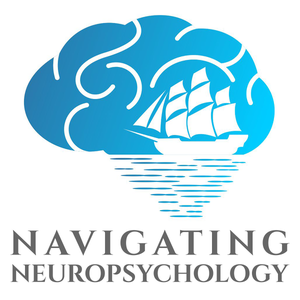 Navigating Neuropsychology
Navigating Neuropsychology
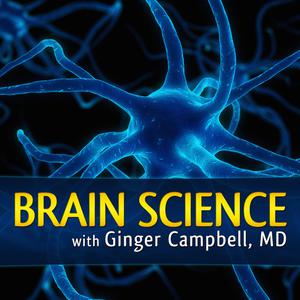 Brain Science with Ginger Campbell, MD: Neuroscience for Everyone
Brain Science with Ginger Campbell, MD: Neuroscience for Everyone
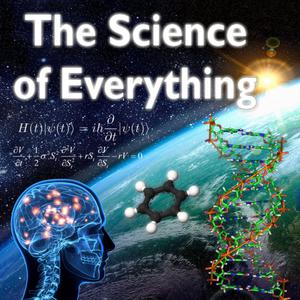 The Science of Everything Podcast
The Science of Everything Podcast
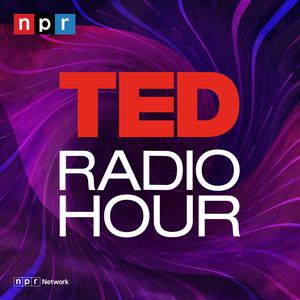 TED Radio Hour
TED Radio Hour
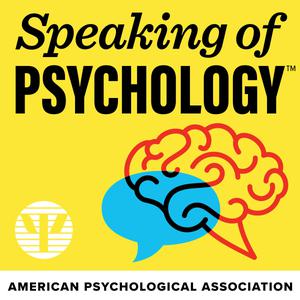 Speaking of Psychology
Speaking of Psychology